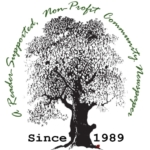Four residents attend referendum public hearing
 by Mary Grow
by Mary Grow
The four people who attended the China selectmen’s Oct. 25 public hearing on China’s Nov. 6 local referendum questions had plenty of time to get their questions answered and their comments noted.
The hearing was recorded as a video; people with the right computer equipment should be able to view it by opening “Live Stream” on the town’s web site.
The third question generated the longest discussion. It asks if voters want to use $5,000 from Tax Increment Finance (TIF) money for a preliminary concept plan for a consolidated emergency services building and perhaps a separate community center on town-owned land off Lakeview Drive, opposite the former Candlewood Camps.
Town Manager Dennis Heath said “consolidated” does not mean China’s three volunteer fire departments will share the building. Weeks Mills and South China would not be affected. The China Village department, which is constrained by its location close to wetlands at the head of China Lake’s east basin, would be the main tenant. Space would also be provided for China Rescue, the policemen who are in and out of town and perhaps for Delta Ambulance. The manager said if there were a building, Delta might station an ambulance in town. Residents have ranked a community center as important on two surveys, Heath said.
The question is on the ballot to see if a majority of voters want selectmen to continue to pursue the projects.
Resident Denis Breton would prefer the town consolidate emergency services in the town office area, sell the 34-acre Lakeview Drive property and “stop growing the empire.” For community events, the town has two schools with gyms and cafeterias, and the Baptist Conference Center building can be rented (expensively, Heath commented).
Resident Sandra Kostron replied that the schools could not be expected to store equipment, for example for a fitness course.
Selectman Irene Belanger said the China for a Lifetime Committee is looking into these issues.
Discussion of the first ballot question, whether to repeal the quorum ordinance, began with brief explanations and turned into consideration of alternatives.
The ordinance has been in effect since at least 1990, passed by voters in response to complaints that town policies and expenditures were being determined by a small number of residents who chose to come to town meetings. Now, Heath said, the complaint is from town office staff, who spend many hours rounding up the 120 voters required to make a meeting legal.
Other suggested ways to bring more residents to meetings included shortening the meetings or rescheduling from a March Saturday morning to a June evening close to the state’s June election day. Instead of an open town meeting, China could do its business by written ballot, giving voters all day to get to the polls; or switch to a council and manager form of government.
A propos of the second question, asking if voters want to seek legislative exemption from the requirement to collect personal property taxes, Heath said the town gets about $100,000 annually from owners of business and farm machinery. He and Selectman Neil Farrington think if the town stopped collecting the tax, new and expanded businesses would help cover the loss.
Question four asks approval to use income this year from the sale of tax-acquired properties to increase two transfer station employees’ hours, entitling them to insurance benefits. In the future, funds would probably come from an increased transfer station budget.
Audience and board members joined in praising the transfer station staff.
The final local question asks voters to allow selectmen to spend up to $100,000 a year in TIF funds for economic development projects between town meetings, on recommendation of the TIF Committee.
Currently, selectmen can spend TIF funds only with voter approval. The March 2019 town meeting warrant included a list of proposed expenditures, like donations to the China Region Lakes Alliance and the annual China Community Days celebration, which voters approved.
Should a new proposal be presented this fall with a request for TIF funds, selectmen could not grant it until voters acted at the March 2019 meeting, unless they considered it so important they tried to get 120 voters to a special meeting before March.
The goal of the ballot question, summarized by Robert MacFarland, Chair of the Selectboard, is “to allow us not to squander an economic development opportunity because of time constraints.”
Voters will act on the questions, and on local elections and state questions, on Tuesday, Nov. 6, by written ballot. China polls will be open from 7 a.m. to 8 p.m. in the former portable classroom behind the town office. Absentee ballots are now available, and residents may vote before Nov. 6 at the town office during office hours.
Responsible journalism is hard work!
It is also expensive!
If you enjoy reading The Town Line and the good news we bring you each week, would you consider a donation to help us continue the work we’re doing?
The Town Line is a 501(c)(3) nonprofit private foundation, and all donations are tax deductible under the Internal Revenue Service code.
To help, please visit our online donation page or mail a check payable to The Town Line, PO Box 89, South China, ME 04358. Your contribution is appreciated!





Leave a Reply
Want to join the discussion?Feel free to contribute!